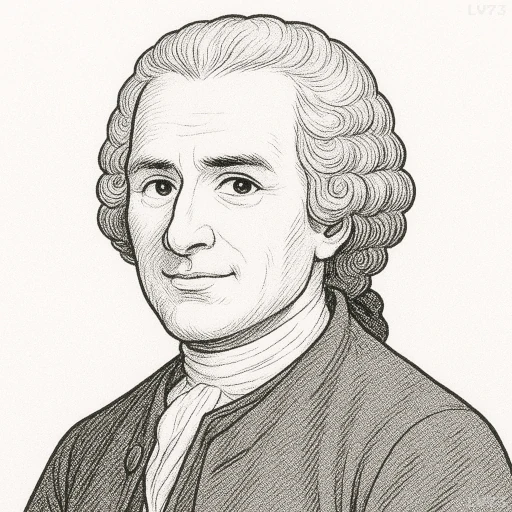“It is unnatural for a majority to rule, for a majority can seldom be organized and united for specific action, and a minority can.”

- June 28, 1712 – July 2, 1778
- Born in Geneva
- Philosopher, political philosopher, writer, composer
table of contents
Quote
“It is unnatural for a majority to rule, for a majority can seldom be organized and united for specific action, and a minority can.”
Explanation
In this quote, Jean-Jacques Rousseau critiques the concept of majority rule in democratic governance, arguing that it is an inherently flawed system because a majority, by nature, struggles to come together with a unified voice or purpose. Rousseau suggests that a majority—composed of diverse opinions, interests, and needs—finds it difficult to coordinate and act decisively. On the other hand, a minority, being smaller and more cohesive, has the ability to focus its efforts, organize, and execute decisions with greater precision and clarity. This reflects Rousseau’s concern that democracy based purely on majority rule might fail to achieve effective action and may be easily swayed by diverse or conflicting individual interests.
Historically, Rousseau’s views were shaped by his broader critiques of political structures and the limitations of representative democracy. In works like The Social Contract, he argued that true political power should come from the general will of the people, but this “will” is not simply the sum of the majority’s preferences. Instead, it should reflect a more unified and rational collective interest that may not always align with the majority’s desires. Rousseau believed that while majority rule might be democratic in principle, it could also be disorganized and ineffective, leading to instability or a lack of meaningful decision-making.
In modern times, this quote can be applied to discussions about governance and decision-making in democratic societies. Critics of majority rule often argue that political gridlock and inefficiency arise when large groups with competing interests struggle to find common ground. Rousseau’s perspective challenges the assumption that democracy is always best served by majority rule and suggests that a more effective governance model might involve smaller, more coherent groups that are capable of organizing and acting decisively. This idea invites reflection on how political systems can balance participation with the need for effective leadership and action, and whether a minority might sometimes be more effective at achieving collective goals.
Would you like to share your impressions or related stories about this quote in the comments section?





